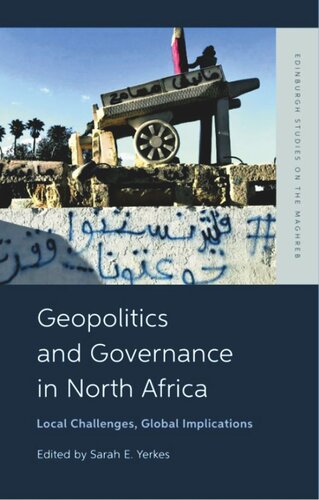

Most ebook files are in PDF format, so you can easily read them using various software such as Foxit Reader or directly on the Google Chrome browser.
Some ebook files are released by publishers in other formats such as .awz, .mobi, .epub, .fb2, etc. You may need to install specific software to read these formats on mobile/PC, such as Calibre.
Please read the tutorial at this link: https://ebookbell.com/faq
We offer FREE conversion to the popular formats you request; however, this may take some time. Therefore, right after payment, please email us, and we will try to provide the service as quickly as possible.
For some exceptional file formats or broken links (if any), please refrain from opening any disputes. Instead, email us first, and we will try to assist within a maximum of 6 hours.
EbookBell Team

4.1
30 reviewsNorth Africa was once on the geopolitical periphery of Middle East dynamics, but it has increasingly come to shape regional trends. In addition to internal political and economic transformations that were accelerated by the protests of 2011 and that have upended or reshaped the lives of millions of the region’s inhabitants, the region is also contending with a range of external challenges. These include the COVID-19 pandemic and its associated economic transformation, changing market dynamics including energy markets, the growing presence of new regional actors like Russia and China, and the changing role of traditional allies such as the European Union, Gulf Cooperation Council countries, and the United States. These dynamics are compounded by other natural and man-made climate changes and demographic changes that worsen them. This volume shows why North Africa, sometimes considered a backwater within a broader Middle East context, actually is the leading edge of change for the region and deserving of far more attention from the international community. North African countries are facing a dizzying array of challenges related to domestic and global trends--political transformation either recent or underway, economic stagnation now worsened by the pandemic, social challenges associated with a frustrated young population--are giving the region more geopolitical relevance with implications for the broader Middle East, Europe, and sub-Saharan Africa.